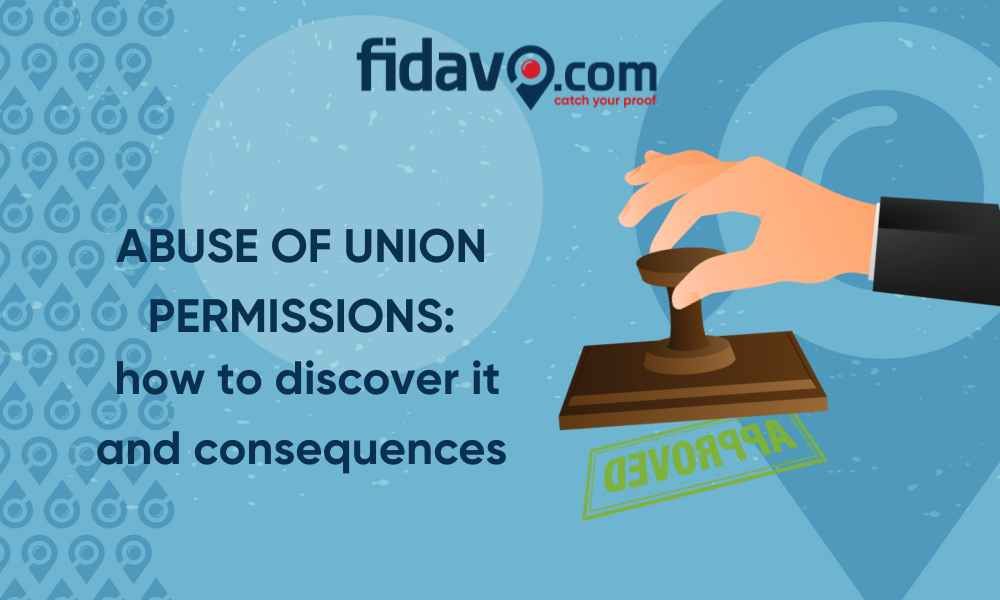Inappropriate use of union permissions: how to discover it and consequences

Abuse of union permissions is a common occurrence, but it can lead to extremely negative consequences. Requesting them without taking responsibility for justifying them could result in dismissal, especially if, unbeknownst to your employer, you use them for activities that go beyond meetings organized by associations.
Below, we will explain what you may face in the case of improper use of these hours and, if you own a business, how to discover any irregularities among your employees.
What are union permissions
Requesting permissions for participation in union activities is defined by Article 20 of the Workers' Statute (Law 300 of May 20, 1970). This law entitles you to payment for the hours required to attend meetings, demonstrations, and anything else organized by the relevant organization.
To include these hours in your paycheck, you must meet certain conditions:
- be a member of a union association
- the activities of the organization must take place, in whole or in part, during the shift specified for that day
- the agenda must concern matters related to work and union matters
- the maximum allowed limit is 10 paid hours per year (starting from a minimum of 8), and never more than 2 monthly meetings.
Being at a meeting from 9:00 to 11:00 in the morning when the start time at the company is scheduled for 3:00 PM, for example, does not grant you the permission, while arriving at 8:00, 9:00, or 10:00 does. In any case, your presence must be recorded and will serve as evidence in case of disputes.
Should participation in union activities be communicated to the employer?
The answer is affirmative but only for managers (external to the organization) who have established the Company Union Representation (RSU). The minimum notice period is 24 hours before the scheduled date, with no possibility of postponement for reasons related to the organization and the company's productivity.
It is advisable to send a written communication with the agenda so that the employer can conduct all necessary checks in case of verification. This applies to both public and private activities, whether paid or unpaid.
Legal consequences of abusing union permissions
The permission hours for union activities cannot be converted into other types of benefits, even with prior notice to your employer. In case of improper use without the employer's knowledge, the trust relationship with the offender is broken, and it is the right of the company owner to take disciplinary action.
In most cases, the choice falls on termination for just cause. As stated in Article 2119 of the Civil Code, the employee can be sent home immediately without receiving a notice allowance when trust is so compromised that it affects the continuation of the professional relationship.
For those who don't want to terminate the employment relationship and instead offer a second chance, they can withhold the compensation for the hours of permission and unofficially give the employee an ultimatum. However, this is a highly risky solution, as the likelihood of repeated misconduct is quite high.
Hours of union permission, the most common abuses
Those who misuse permissions to attend union assemblies often do so for personal reasons. Here is a brief list of the most common violations:
- Recreational activities and entertainment
- Work for competitors
- Fulfilling family duties.
To avoid disciplinary action, employees should use vacation days (or request other types of permissions), avoid agreements with competitors, and, when possible, swap shifts with colleagues.
How to discover the abusive use of union permissions
Discovering abuses is possible, but you must do it with the right tools and strictly in accordance with the law. To avoid violations and irregularities in your investigations, you can hire a private investigator to look into the situation.
The detective can verify the actual presence of your employees at union meetings, with the collection of evidence. This may include, in addition to recording attendance, photographs, audio and video files, written statements, phone calls, and messages.
At the end of the investigations (conducted with the utmost discretion), the agency will compile a report on the situation. This can be used as evidence in legal proceedings, along with the testimony of the investigator if necessary.
To quickly uncover the truth about your employees' conduct, turn to a qualified professional. They should have a degree in legal disciplines, a valid license, and strong problem-solving skills.
Beware of those who do not present the pros and cons, do not issue invoices, and cannot explain the likelihood of success in operations. If you want to delve deeper into the topic of abusing union permissions, we recommend taking courses available from accredited agencies.
 EN
EN  IT
IT 